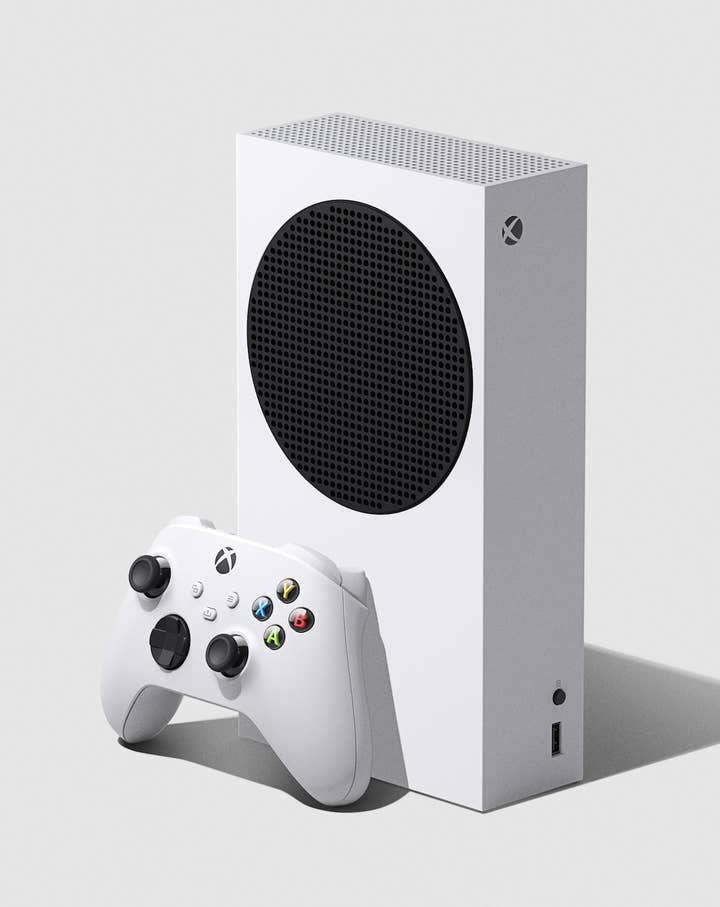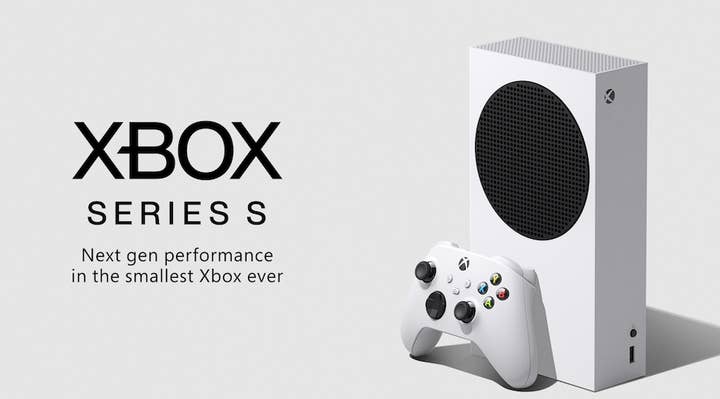Xbox's next-generation strategy threatens to disrupt the console business l Opinion
Xbox Series S and Game Pass could change console gaming forever. Maybe.
I woke up yesterday morning to a string of emails and messages from people asking for my thoughts on the Xbox Series S reveal.
Is this going to change the game in terms of who buys consoles at the start of a new generation? How much of a blow is this $299/£249 price going to be for PlayStation? Will consumers understand what the hell is going on with all these different configurations? Is it fair to even call this new console a next-gen device?
I sat back for a good few moments, thought about historical precedents and my own accrued knowledge from decades analysing the video games market, before replying the same answer to each message.

"I don't know."
Even leaving aside the pandemic for a moment, this has been an exhilarating and exasperating move to a new console generation. Xbox isn't playing the game. It's setting its own rules and breaking from the well-established conventions. Microsoft is threatening to launch a console without any real exclusives of any kind, it's telling its audience it can just play on PC or xCloud, and its main focus is a subscription service that you can already access on the current console and even PC.
Compare that to PlayStation 5, with its simple positioning, impressive software launch line-up, and huge PS4 player base to upgrade, and the results seem inevitable. I refer you back to our 'console war is over' article, where I predicted Xbox will continue to dominate in subscriptions, Nintendo will keep growing its character IP (and the latest Super Mario Direct only furthered that), but it is PS5 that will likely be the next generation's best-selling platform. Everybody wins.
Yet predictions during this time are a tricky business, because what Xbox is doing really has no precedent in games. A low-end, budget-priced next-gen Xbox to sit alongside a high-end version at launch hasn't been done before. It does fit with Microsoft's subscription vision of getting hardware out to as many people as possible; these machines are not so much platforms in themselves, but Game Pass Delivery Devices designed to give you access to a library of games that you're paying $10 a month to play.
"Xbox is doing things that really have no precedent in games"
But who is Xbox Series S for? Is there an audience that might buy a low-end next-gen console at launch? I don't know. Nobody has tried to find out.
Game Pass is equally a relative unknown. It's had a great start to life and has amassed a huge audience of more than ten million subscribers, thanks in part to the big Microsoft exclusives. It is a proposition that has just been made even stronger with the addition of EA Play, which has seen recent FIFA, Star Wars, Battlefield and The Sims games come to the service.
But how big can Game Pass get? Is there a ceiling? People simply don't play as many games as they watch TV shows or listen to music, so surely that will limit the appeal of a gaming subscription service... right? Or will we just see more people playing more games as a result of this model?
As a business journalist trying to look at past data to predict the future, the whole thing is fascinating and infuriating in equal measure. We are in new territory here, and comparisons to other entertainment segments isn't like-for-like.
"What if in a post-pandemic economy, a cut-price next-gen machine and an affordable subscription offering is exactly what consumers need?"
Look back at the history of games, and there are examples of major companies trying to disrupt the traditional business models in such a way, and succeeding. The first two PlayStation consoles had fantastic games on them, but a lot of that success came down to the move to new formats, affordable pricing, and developer-friendly business models, which caught Sega out and unseated Nintendo. Nintendo's focus on fewer, bigger exclusives from its 'Dream Team' of developers meant that the N64 found a loyal audience, but it was also a strategy that enabled PlayStation to transform the entire business in its own image.
Xbox is inviting customers to join the next-generation for $299/£249, and giving them a month of big free games for next to nothing. It could be even more manageable with an All Access subscription, where players can pay a small monthly fee to get access to the hardware, plus Game Pass, much like they would a new iPhone.
We're used to consoles being sold on their big exclusives (like a Zelda or Halo) or on their technical advancements (like HD visuals or motion controls). Those are the things we're used to discussing at the launch of a new machine, and with Halo pushed to 2021, and with PlayStation showing off its fancy 3D Audio and DualSense controller, you would have to think that it's Sony in the driving seat once again. Especially if it can deliver a Spider-Man game at launch.
But what if in a post-pandemic economy, a cut-price next-gen machine and an affordable subscription offering is exactly what consumers need? What would that mean for Sony's premium machine and $60 games? Could Game Pass, like PS2's DVD player, be the real killer app that will end up defining the next era of console gaming?
It's exciting to watch, but ultimately, I just don't know.









